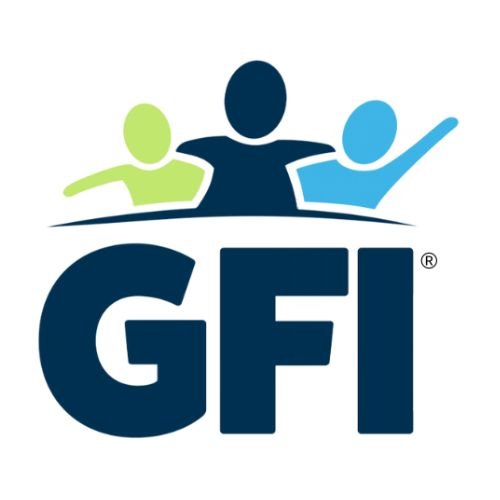Seeking an Adult Autism Diagnosis
A common topic in autism chatter of today is the “boom” in diagnoses, the refrain being that all of these people cannot actually be on the spectrum. The conversation is delicate because while there are a handful of explanations for this perceived rise in autism, not everyone who experiences difficulties in their social life is anything other than awkward. Not everyone who finds certain stimuli triggers their anxiety is living on the spectrum. It’s any wonder how many adults believe themselves to be autistic but aren’t, or are but have no idea.
Exploring Universal Design and Inclusion
While we celebrate the rainbow of neurodivergence, there also exists a challenge for educators and caregivers, who need to guide many variations of learners, regardless of neurotype, catering to their individual style of comprehension and attention. This is where Universal Design for Learning (UDL) truly changes the game.
Can Disability Harassment in School Be a Denial of Free Appropriate Public Education?
Students with autism are more likely than their neurotypical peers to become the targets of bullying behavior (PACER). When the relational aggression is specific to the student’s disability, it can be deemed disability harassment. Disability harassment is a violation of three federal laws: the Individuals with Disabilities Education Act (IDEA 2004), Sec. 504 of the Rehabilitation Act (1973), and Title II of the Americans with Disabilities Act (1990).
Fostering a Sense of Belonging in the Classroom
With technological distractions inside the classroom, lifestyle stressors outside of it, learning challenges and varying degrees of disability, not to mention every student’s inner voice that questions their worth at every turn, it’s a wonder how learners get through it. Finding a place to learn and belong is of urgent, vital importance. Feeling valued and included by peers begins with the educator, and benefits the grown-ups and kids alike.
Raising Awareness in the Workplace during NDEAM
October is underfoot, and with it comes National Disabled Employment Awareness Month (NDEAM). In this annual celebration, we recognize the contributions of disabled employees, and work toward improved opportunity throughout the workplace. This year’s theme is “Advancing Access and Equity,” highlighting that despite the 19% of the American workforce experiencing some form of disability, their unemployment rate tends to be double that of the general population. We simply must be better.
Myths about People with Divergent Neurology and Their Lived Experience
Back when they were going through various developmental screenings and diagnostic processes, I had some preconceived notions of what their newly-named neurological differences meant. When I heard “autism”, I thought “Rain Man”. When I heard “ADHD”, I thought “overdiagnosed”. When I heard “intellectual disability”, I thought “not capable of graduation”. None of those thoughts were helpful.
The Case for Explaining Your Autistic Child's Neurology
As a community helping children to be more aware, accepting, and empathetic, we can do better – and we must. Whether we’re improving our neurodivergent children’s self-awareness and perception or helping neuromajority children realize that different brain wiring impacts the way autistic peers understand and process the world around them, sharing information in an age-appropriate, strengths-based way is critical to healthy social emotional development.
Neurodivergence and Emotional Response
What any educator will confirm is that every child is unique, whether on the spectrum or not. How they react to stimuli will vary among them, with some increased irregularity among our neurodiverse kids. Recognizing exactly how we’re feeling from their perspective, or how they’re feeling inside, can be difficult to interpret. Here are some common emotional responses to dispel some of the mystery.
Demonstrating Autistic Acceptance
If the aim is an inclusive classroom for neurodivergent kids, we aren’t going to achieve much without leadership showing them how it’s done. Modeling this sort of behavior might feel cumbersome, for fear of overcompensating with forced or unnatural interactions. But a few subtle techniques fly right under the radar and create a culture of acceptance with ease.
5 Classroom Activities That Foster Inclusion
As educators, we value the importance of inclusion and recognize that each and every student comes with their own gifts, quirks, and challenges. Our kids, who are still discovering who they are, and each other, benefit from classroom activities that foster inclusion, educate and celebrate their unique characteristics, and create better connections between peers.
THIS is autism!
As a parent of two children with autism spectrum disorder, and as a professional who's spent the last six years working toward autism acceptance in schools, I found Suzanne Wright's blog posting, "Autism Speaks Point of View" for last week, incredibly offensive. Apparently, so did hundreds of others, whose comments at first were allowed on the website just below the posting. Those have since been removed and comments are no longer recorded (there).
What comes after Awareness?
It's a busy month in the Good Friend calendar: Autism Awareness Month. We caregivers are all bustling about with blue in our 'dos and shining our lights and wearing our puzzle piece pins. And as my own children with ASD get older (they're now 14 and 11), they're taking more notice of all the buzz. As they take more notice and I explain in more depth, it all adds to their self-awareness. So in our household, Autism Awareness Month really is a triple threat (and I mean that in a benign way): It's important to me as a mom, to our organization's work, and to my kids as people with ASD.













